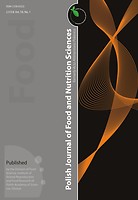
Rethinking convergence in plant parasitism through the lens of molecular and population genetic processes.
Sign Up to like & getrecommendations! Published in 2023 at "American journal of botany"
DOI: 10.1002/ajb2.16174
Abstract: The autotrophic lifestyle of photosynthetic plants has profoundly shaped their body plan, physiology, and gene repertoire. Shifts to parasitism and heterotrophy have evolved at least 12 times in more than 4000 species, and this transition… read more here.
Keywords: molecular population; parasitism; physiology; parasitic plants ... See more keywords

Caught in action: fine-scale plastome evolution in the parasitic plants of Cuscuta section Ceratophorae (Convolvulaceae)
Sign Up to like & getrecommendations! Published in 2019 at "Plant Molecular Biology"
DOI: 10.1007/s11103-019-00884-0
Abstract: Key messageAn exhaustive analysis of a group of closely related parasitic plants shows a predominantly gradual reduction in plastid genome composition and provides the most reduced plastomes in the genus Cuscuta.AbstractParasitic plants have a diminished… read more here.
Keywords: plastome evolution; evolution; ceratophorae; fine scale ... See more keywords

How to pit weeds against parasitic plants. A simulation study with Phelipanche ramosa in arable cropping systems
Sign Up to like & getrecommendations! Published in 2021 at "European Journal of Agronomy"
DOI: 10.1016/j.eja.2021.126368
Abstract: Abstract Branched broomrape (Phelipanche ramosa (L.) Pomel) is a parasitic plant, which causes severe yield losses in major crops worldwide. Due to its broad host range, including numerous non-parasitic weed species, the persistence of its… read more here.
Keywords: broomrape; cropping systems; phelipanche ramosa; parasitic plants ... See more keywords

Parasitic plants: Injecting hormone into host
Sign Up to like & getrecommendations! Published in 2017 at "Nature Plants"
DOI: 10.1038/nplants.2017.84
Abstract: Many crop species suffer from parasitic infection, as parasitic plants extract nutrition from the host plants. Parasite haustoria penetrate the host and bridge substance transfer between the parasite and host. A recent study, from Thomas… read more here.
Keywords: cytokinin; hormone; infection; haustoria ... See more keywords

Evaluation of the Antioxidant and Cytotoxic Activities on Cancer Cell Line of Extracts of Parasitic Plants Harvested in Tunisia
Sign Up to like & getrecommendations! Published in 2020 at "Polish Journal of Food and Nutrition Sciences"
DOI: 10.31883/pjfns/122040
Abstract: The term ‘weed’ defi nes a plant that does not have any function considered useful for agricultural production and causes damage to existing plants. The harmfulness of weeds appears mainly in the following aspects: competition… read more here.
Keywords: antioxidant cytotoxic; cytotoxic activities; cancer cell; evaluation antioxidant ... See more keywords

The Enigma of Interspecific Plasmodesmata: Insight From Parasitic Plants
Sign Up to like & getrecommendations! Published in 2021 at "Frontiers in Plant Science"
DOI: 10.3389/fpls.2021.641924
Abstract: Parasitic plants live in intimate physical connection with other plants serving as their hosts. These host plants provide the inorganic and organic compounds that the parasites need for their propagation. The uptake of the macromolecular… read more here.
Keywords: interspecific plasmodesmata; parasite host; plasmodesmata insight; enigma interspecific ... See more keywords

Genomic and Epigenomic Mechanisms of the Interaction between Parasitic and Host Plants
Sign Up to like & getrecommendations! Published in 2023 at "International Journal of Molecular Sciences"
DOI: 10.3390/ijms24032647
Abstract: Parasitic plants extract nutrients from the other plants to finish their life cycle and reproduce. The control of parasitic weeds is notoriously difficult due to their tight physical association and their close biological relationship to… read more here.
Keywords: parasitic host; interaction parasitic; host plants; parasitic plants ... See more keywords